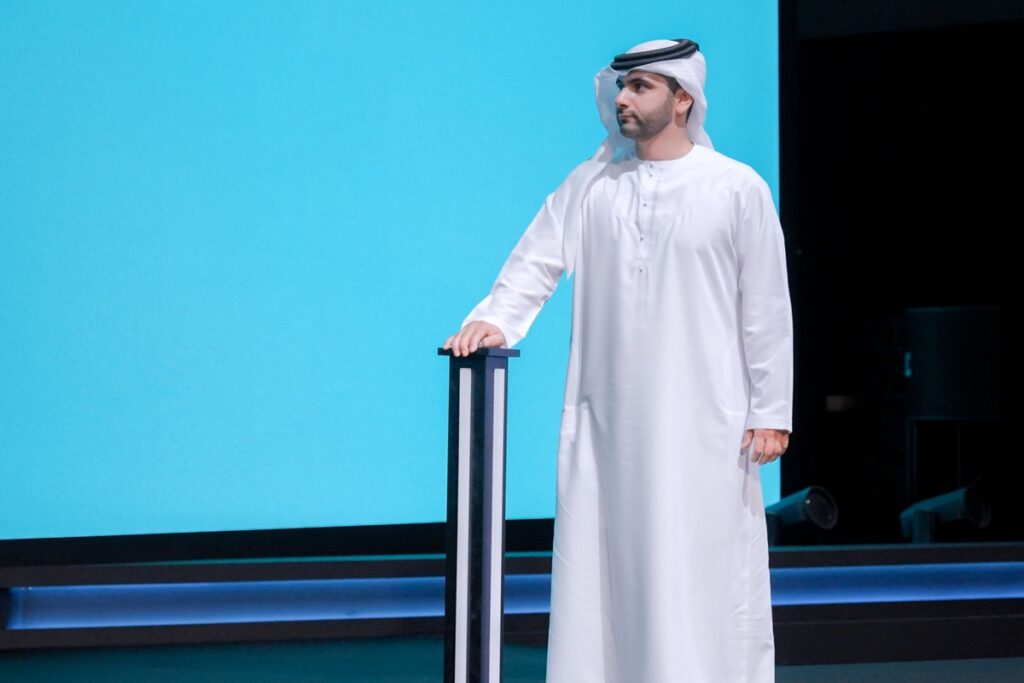Dubai has set out one of its most ambitious long-term sector plans to date, unveiling a strategy to double the sports sector’s economic contribution to AED18.3bn ($5bn) annually by 2033.
The Dubai Sports Sector Strategic Plan 2033 targets expanding the number of residents actively engaged in sport from 1.6m to 2.6m, while increasing annual attendance at major sporting events to 4.1 million, more than doubling current levels.
The plan forms a major pillar of Dubai’s long-term agenda to elevate quality of life, community wellbeing and global competitiveness.
Dubai 2033 Sports Sector Strategic Plan
Sheikh Mansoor bin Mohammed bin Rashid Al Maktoum, Chairman of the Dubai Sports Council (DSC), launched the plan at a dedicated event at the Nad Al Sheba Sports Complex, attended by international athletes, sports officials, federations, academies and industry partners.
Sheikh Mansoor also unveiled Dubai’s new sports identity — selected from thousands of public submissions.
The emblem unifies the emirate’s sporting ecosystem and reflects Dubai’s ambition to be among the world’s leading destinations for athletes, sporting events and innovation.
He said: “We have launched a comprehensive and forward-looking vision for the future of sport in Dubai, one that enhances the sector’s competitiveness, creates new opportunities, nurtures young talent and strengthens Dubai’s global reputation as a centre for sporting excellence.
“In the next phase, our focus will be on empowering both public and private clubs to reach international standards, expanding community participation and developing world-class facilities and infrastructure that reflect Dubai’s ambition and capability.
“Our goal is for Dubai to become the world’s leading destination for sports and athletes by building a sports ecosystem that is dynamic, innovative and internationally competitive.”
$5bn economic target
The Dubai Sports Sector Strategic Plan 2033 is structured around four pillars — Community, Events, Clubs and Talent — and includes 19 programmes and 75 initiatives.
Its key economic and community targets include:
- Doubling annual sports sector GDP contribution from AED10.17bn to AED18.3bn ($5bn)
- Increasing residents actively participating in sport from 1.6m to 2.6m
- Raising attendance at major sports events from 1.67m to 4.1m annually
The plan classifies 17 priority sports across three categories:
- Emerging sports: padel, combat sports, Esports
- Community sports: running, swimming
- Sports with global reach: golf, cricket, basketball
These categories reflect both international trends and local demand drivers and are designed to strengthen competitiveness, sustain long-term industry growth and support global positioning.

Wellbeing and economic progress
Sheikh Mansoor said: “Sport is a fundamental pillar of Dubai’s vision for a vibrant and cohesive society. It promotes wellbeing, brings people together and inspires progress. We call on all entities and individuals to contribute to the success of this plan, ensuring Dubai continues to set new standards of quality and impact.”
He also directed that the objectives of the Dubai Sports Sector Strategic Plan 2033 and the new sports identity be showcased during the World Sports Summit in Dubai at the end of December, which will bring together global sports leaders, federations, institutions and companies.
Dubai Quality of Life Strategy 2033 and D33
The plan aligns with the Dubai Quality of Life Strategy 2033, launched earlier this year under the directives of Sheikh Mohammed bin Rashid Al Maktoum and under the supervision of Sheikh Hamdan bin Mohammed bin Rashid Al Maktoum. It also supports the objectives of the Dubai Economic Agenda D33, reinforcing sport’s role in economic diversification and long-term competitiveness.
The strategic plan aims to build an integrated sports system that combines community development, competitive excellence and effective governance, while keeping pace with global shifts across the sports industry.
To ensure effective execution, the Dubai Sports Council will introduce robust governance mechanisms, including:
- Clear performance indicators
- Strengthened coordination with government and private-sector partners
- Frameworks to ensure sustainability and investment efficiency in sports infrastructure
The plan further consolidates Dubai’s position as the region’s sports capital and a global destination for athletes, talent and sports investors.
It also reinforces Dubai’s leadership across global happiness and quality-of-life indices, reflecting the emirate’s long-term vision of sport as a foundation of wellbeing and progress.

